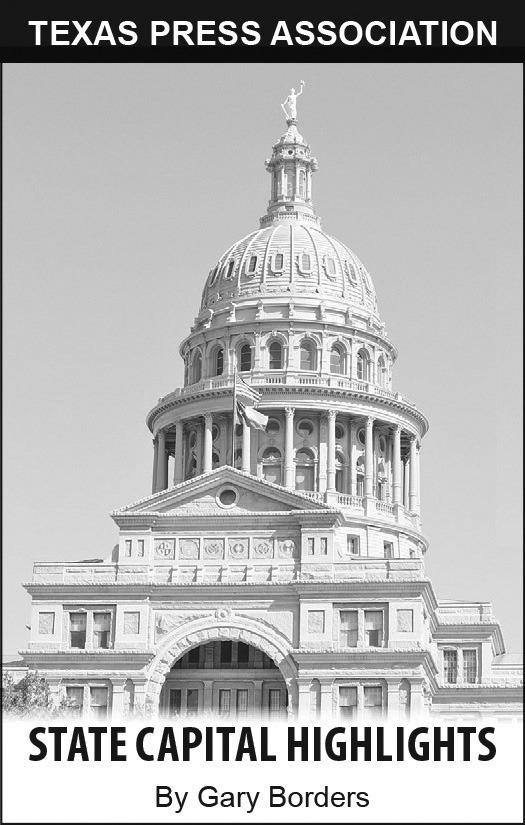A federal investigation into five state facilities concluded children in custody face excessive force, sexual abuse and a lack of vital services, The Dallas Morning News reported.
At a news conference last week, Kristen Clarke, assistant attorney general in the Justice Department’s civil rights division, said children held in those facilities are not receiving the treatment and rehabilitation they are supposed to get.
“Our investigation provides reasonable cause to believe that, far from achieving those objectives, TJJD engaged in a pattern of abuse, deprivation of essential services and disability- related discrimination that seriously harms children and undermines their rehabilitation, all in violation of their rights,” Clarke said.
In response, the Texas Juvenile Justice Department said it had made “several significant improvements” in staffing, educational programs and mental health care. The Legislature appropriated more than $1 billion last session to improve youth facilities.
The youth facilities are located in Gainesville, Edinburg, Brownwood, Giddings and Mart.
Investigators found evidence of physical and sexual abuse, according to the report.
TxDOT ADOPTS LONG-RANGE TRANSPORTATION PLAN “Connecting Texas 2050” was adopted recently by the Texas Transportation Commission to help guide priorities in the next quarter-century. The plan establishes the vision, goals, objectives and strategic recommendations for the state’s transportation system.
“With a growing population and new technologies changing how we move, these goals will help us plan for decades to come and connect future generations of Texans,” Marc Williams, TxDOT executive director, said.
The agency held a series of public meetings to gather input from the state’s citizens. Among the priorities listed were safety, alternative modes of travel, public transportation options and maintaining the state’s existing transportation infrastructure.
To learn more about the plan, go to www.ConnectingTexas2050. com.
COURT: BUOYS CAN STAY IN RIO GRANDE UNTIL TRIAL
A full panel of the U.S. Fifth Circuit of Appeals ruled last week that a 1,000-foot-long barrier of buoys can stay in the Rio Grande until a full trial is held. The buoys, meant to deter illegal migrants, were placed on orders by Gov. Greg Abbott. Their legality was challenged by the federal government, which argues their placement violates federal treaties between the United States and Mexico.
At issue is whether this stretch of river is navigable, according to a report in the Texas Standard. A trial over the legal merits was slated to start in an Austin federal court this week.
FLESH-EATING BACTERIA ON RISE ALONG COAST Authorities are warning of an outbreak of flesh-eating bacteria, with nearly a dozen people infected thus far, The News reported. Galveston County officials said 11 cases of vibrio infections have been reported this summer, compared to just two at this time last year.
The bacteria occur in coastal waters and are found in higher concentrations when water temperatures are warmer. It can be contracted when an open wound comes into contact with coastal waters, or from eating raw or undercooked shellfish.
“There’s no need to panic,” Dr. Phillip Keiser, CEO of the Galveston County Health District, said in a statement. “Use common sense: avoid raw seafood, practice good hygiene, and stay informed to keep safe.”
The Centers for Disease Control estimates 80,000 cases of vibrio occur in the U.S. each year.
PUC GETS 72 APPLICATIONS FOR ENERGY LOAN PROGRAM The Public Utility Commission received 72 applications for loans available through the Texas Energy Fund, which if all granted would provide $24.41 billion to finance 38,379 megawatts of power generation projects in the region served by the Electric Reliability Council of Texas.
“Texans have made it clear that they expect reliable electricity today and well into the future, and I am pleased to see industry leaders responding to that call and planning for major investments in dispatchable power for the state,” PUCT Chairman Thomas Gleeson said.
The program will provide low-interest loans to finance new construction or upgrades to existing power-generating facilities within the ERCOT region, which serves most of the state. Funding for the loan program was approved by Texas voters in a constitutional amendment election last November.
NINE TEXAS COURTHOUSES GET HISTORIC GRANT FUNDING The Texas Historical Commission recently awarded more than $46 million in preservation grants to historic courthouses in nine counties. Four grants for full restoration were awarded for courthouses in Comanche, Kimble, Van Zandt and Willacy counties.
Castro and Gonzales counties received planning grants that will create planning road maps for future restoration work. Donley, Duval and Refugio counties received emergency grants to address critical issues endangering these courthouse buildings and affecting their use.
THC has awarded more than $400 million since the program’s inception to restore courthouses in Texas.
“As part of our mission to save the real places that tell the real stories of Texas, we hope to work with even more counties in the future,” Joseph Bell, THC executive director, said.
WATER BOARD DETAILS HOW IT WILL SPEND $1 BILLION The Texas Water Development Board last week began detailing how it will divide $1 billion in taxpayer approved funds for water infrastructure and supply projects throughout the state, The Tribune reported. Up to $45 million will be reserved for towns with fewer than 1,000 residents, while about $130 million will go to towns with 1,001 to 10,000 residents.
The board said it plans to spend up to $450 million toward existing financial assistance programs, $90 million on water loss and conservation programs, and $15 million on awareness and educational programming.
“We have a whole lot more applications that are submitted than we have capacity in any given program year to provide financial assistance,” said Kathleen Ligon, interim assistant executive administrator at the Water Development Board.
The board has already received 68 requests for funding from this pot of money.
Gary Borders is a veteran award-winning Texas journalist. He published a number of community newspapers in Texas during a 30-year span, including in Longview, Fort Stockton, Nacogdoches, Lufkin and Cedar Park. Email: gborders@texaspress. com








